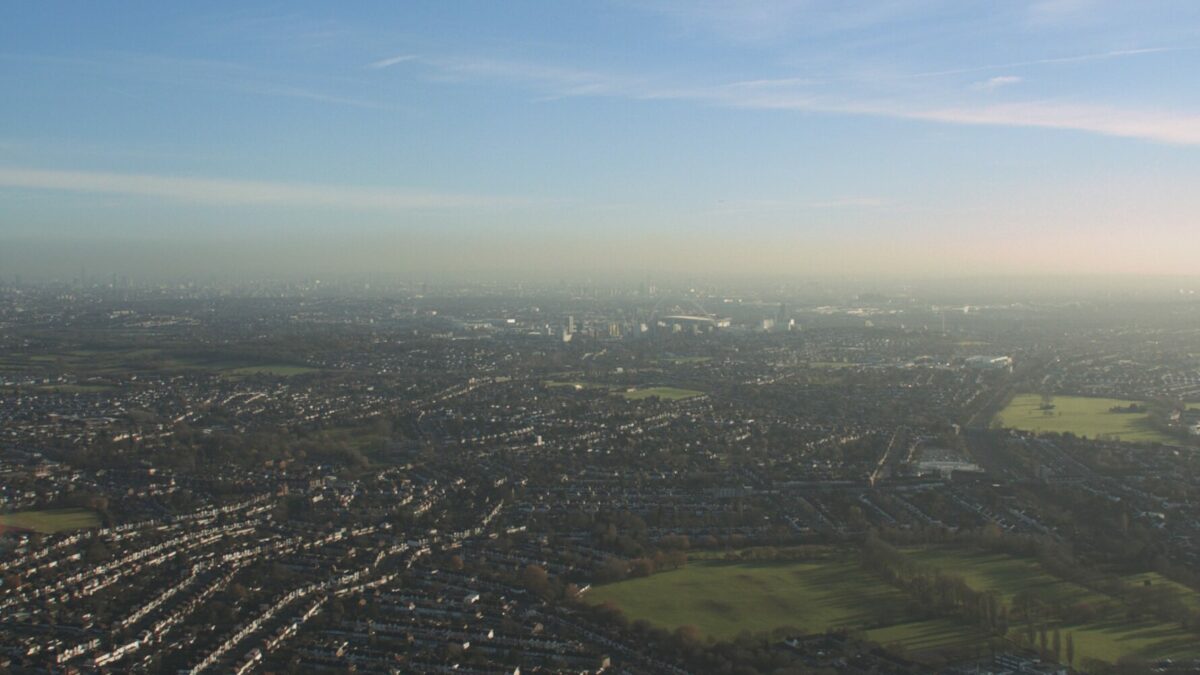Grenfell, showing at The Serpentine Gallery, is a poignant take on an avoidable tragedy and its ongoing social story
An Oscar-winning director and West London native, Steve McQueen delivers in his latest film Grenfell a new and timely chapter in the slow reckoning that continues to speak to today’s history – addressing in one unerring movement the reality of the fire which killed 72 people on June 14 2017.
Filmed in one airborne take, the piece begins above the green and pleasant suburban land of North London, moving across Wembley towards Grenfell’s charred totem. This isn’t quite the Satanic industry Blake alluded to but it is a cultural scar. We see London’s sweeping size: a place in which people and purposes get lost. The analytical zoom reveals an unnatural Pompeii. Here were windows, rooms, people and lives; now replaced by hazmat suits and red bin bags. The tragedy is first raw in stark contrast to the city’s continuum which surrounds the tower. The shot perseveres and the tragedy manifests.
McQueen’s curation references his visit to the tower from his own West London neighbourhood to visit friends and their newborn first child – “She was Italian and her partner was Algerian… the viewpoint was amazing”. These were always welcoming communities but ones living increasingly as a social ‘Other’, outside of the Venn diagrams of the mainstream and forgotten – consciously or unconsciously. Grenfell Tower’s unsafe nature had been noted extensively before the fire, yet it was never expedient to address this. Following the tragedy, the Royal Borough of Chelsea & Kensington remained incompetent while the government was notable for it absence of direction – this was negligence, not hubris.
“Reflecting on the moment now, I feel the weight of the present,” writes McQueen. “A tragedy that simply did not have to happen, yet did due to deliberate neglect.” That neglect may yet be addressed by implementing the building regulations still awaited in the government’s forthcoming report. However, for this healing to have real meaning there are social perceptions to be changed. The ‘otherness’ this community suffered is too often a political blind spot and far too often encouraged by the moral negligence of our politicians. The people drowning in the Channel, or awaiting internment on barges, are deliberately placed where our gaze cannot go – in the hope our political responsibilities will soon dissipate. If this is the reality today, then the assertion of Paul Gilroy, who contributed to the exhibition guide, that “closure is not an option”, is true.
The advent of the fire may have been an accident but its likelihood and the ‘otherness’ of its victims weren’t – neither are those two things coincidental. Grenfell is at its heart a social tragedy, one laid bare by McQueen’s introspective film: looking now through the tower’s melted windows, the charred detritus, and then much deeper through the one fabric we all share.
Grenfell by Steve McQueen is at Serpentine South from Friday 7 April – Wednesday 10 May 2023.
Image top: Steve McQueen, Grenfell, 2019 (still), courtesy the artist

